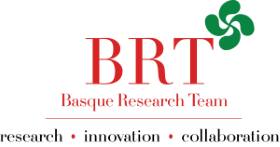by Borislava Manojlovic | Mar 25, 2015 | About, events |
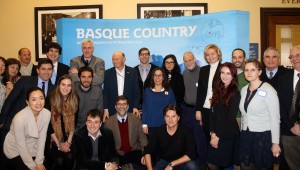 On March 6th, 2015, the Advanced Consortium on Cooperation, Conflict, and Complexity (AC4) at Columbia University came together with the Agirre Lehendakaria Center (ALC) and our collaborators to host a public seminar at Columbia University. For several years, AC4, ALC, and our partners at Seton Hall University, George Washington University, and Scensei LLC have been engaged in an investigation of the Basque Case of Sustainable Human Development from different disciplinary perspectives. By conducting rigorous, innovative research, we hope to refine and expand upon lessons from the Basque experience that can provide guidance to other societies pursuing sustainable human development (SHD).
On March 6th, 2015, the Advanced Consortium on Cooperation, Conflict, and Complexity (AC4) at Columbia University came together with the Agirre Lehendakaria Center (ALC) and our collaborators to host a public seminar at Columbia University. For several years, AC4, ALC, and our partners at Seton Hall University, George Washington University, and Scensei LLC have been engaged in an investigation of the Basque Case of Sustainable Human Development from different disciplinary perspectives. By conducting rigorous, innovative research, we hope to refine and expand upon lessons from the Basque experience that can provide guidance to other societies pursuing sustainable human development (SHD).
Titled “Models of Sustainable Human Development: Lessons from the Basque Case”, the seminar allowed the project team to share the latest advancements in our research on aspects of SHD, while inviting others to engage with our work as it progresses. We were pleased to welcome attendees from the Basque Country, the Columbia University community, and other organizations, who offered a variety of valuable perspectives, thoughtful questions, and new ideas.
The seminar included updates on projects as diverse as mapping and analyzing narratives of the Basque peace process (Dr. Armando Geller, Scensei LLC), applying a Lonergan economic model to the Basque economy (Dr. Paul Hoyt-O’Connor, George Washington University), empirically modeling the connection between institutional characteristics and the pursuit of SHD (Dr. Josh Fisher and Kristen Rucki, AC4, Columbia University), and building narratives of transformation in Northern Ireland (Gorka Espiau, ALC). New endeavors were shared, including the creation of the Basque Research Team at Seton Hall University (Dr. Andrea Bartoli and Dr. Borislava Manojlovic, Seton Hall University) and the Sustainable Peace Systems Mapping Initiative at Columbia University (Dr. Peter Coleman and Kyong Mazzaro, AC4). Dr. Andrea Bartoli and Dr. Borislava Manojlovic also introduced several exciting new proposals for future research.
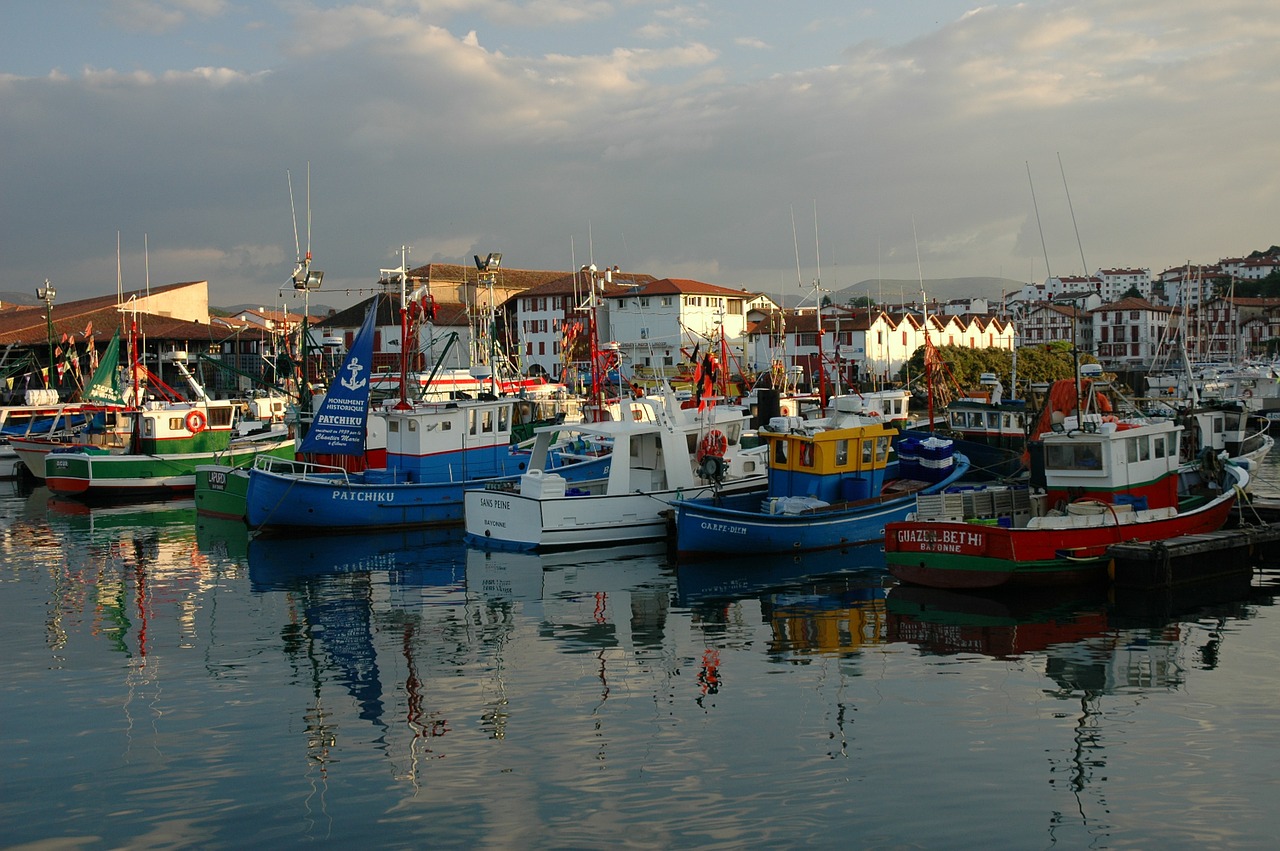
by Borislava Manojlovic | Feb 24, 2015 | About |
The Basque Country Research
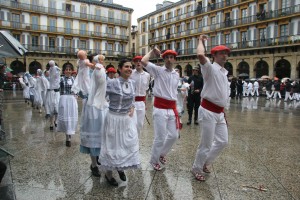 The investment in the Basque region started with Elkarri (http://www.elkarri.org/en/), an established NGO dedicated to the peace process in the Basque country, that began conversation with Senator George Mitchell and his possible involvement in the peace process. Senator George Mitchell was, at that time, senior research scholar at the Center for International Conflict Resolution established by Andrea Bartoli at Columbia University. Elkarri representatives visited the Center and Senator Mitchell suggested exploring different opportunities and collaboration with Gorka Espiau and Jonan Fernandez. This was an important step, which resulted in an ongoing collaboration based on the following principles:
The investment in the Basque region started with Elkarri (http://www.elkarri.org/en/), an established NGO dedicated to the peace process in the Basque country, that began conversation with Senator George Mitchell and his possible involvement in the peace process. Senator George Mitchell was, at that time, senior research scholar at the Center for International Conflict Resolution established by Andrea Bartoli at Columbia University. Elkarri representatives visited the Center and Senator Mitchell suggested exploring different opportunities and collaboration with Gorka Espiau and Jonan Fernandez. This was an important step, which resulted in an ongoing collaboration based on the following principles:
- Respect for actual local experiences
- Need for assessments and evaluations of the previous work in the Basque country which enables the team to learn and build on what was done before
- Emphasis on conversations about local conditions and the interplay between local and global as well as exploration of innovative strategies and research
- Long term commitment that comes from appreciation of the Basque country and its people and the need to look at specific current and past issues
 The collaboration started at the Center for International Conflict Resolution at Columbia University, but expanded quickly to include Peter Coleman, who is the Director of the International Center on Conflict and Cooperation at Teacher’s College and AC4. This collaboration grew further when Andrea Bartoli became the Dean of School for Conflict Analysis and Resolution and included George Mason University (GMU) into the collaborative space. This led to the signing of an agreement by GMU, Columbia University and the University of the Basque Country that established the Agirre Center. The name comes from Jose Antonio Agirre, who was the first Lehendakari and who taught at Columbia University after being exiled by Franco’s regime.
The collaboration started at the Center for International Conflict Resolution at Columbia University, but expanded quickly to include Peter Coleman, who is the Director of the International Center on Conflict and Cooperation at Teacher’s College and AC4. This collaboration grew further when Andrea Bartoli became the Dean of School for Conflict Analysis and Resolution and included George Mason University (GMU) into the collaborative space. This led to the signing of an agreement by GMU, Columbia University and the University of the Basque Country that established the Agirre Center. The name comes from Jose Antonio Agirre, who was the first Lehendakari and who taught at Columbia University after being exiled by Franco’s regime.
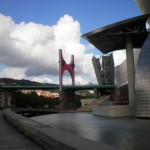 The research team at Seton Hall is the latest expression of this long term investment to learn about the Basque case. The key features of the research team are its interdisciplinarity and emphasis on young professionals-senior scholars collaboration. The team explores different areas and sectors to create a collaborative and an environment in which learning can be shared and made public. The team works as a support structure that is respectful of individual preferences in terms of disciplinary focus, individual interests and methodologies, but it is part of the larger project of learning from experiences and in particular learning from the peace processes and dealing with the past.
The research team at Seton Hall is the latest expression of this long term investment to learn about the Basque case. The key features of the research team are its interdisciplinarity and emphasis on young professionals-senior scholars collaboration. The team explores different areas and sectors to create a collaborative and an environment in which learning can be shared and made public. The team works as a support structure that is respectful of individual preferences in terms of disciplinary focus, individual interests and methodologies, but it is part of the larger project of learning from experiences and in particular learning from the peace processes and dealing with the past.
 On March 6th, 2015, the Advanced Consortium on Cooperation, Conflict, and Complexity (AC4) at Columbia University came together with the Agirre Lehendakaria Center (ALC) and our collaborators to host a public seminar at Columbia University. For several years, AC4, ALC, and our partners at Seton Hall University, George Washington University, and Scensei LLC have been engaged in an investigation of the Basque Case of Sustainable Human Development from different disciplinary perspectives. By conducting rigorous, innovative research, we hope to refine and expand upon lessons from the Basque experience that can provide guidance to other societies pursuing sustainable human development (SHD).
On March 6th, 2015, the Advanced Consortium on Cooperation, Conflict, and Complexity (AC4) at Columbia University came together with the Agirre Lehendakaria Center (ALC) and our collaborators to host a public seminar at Columbia University. For several years, AC4, ALC, and our partners at Seton Hall University, George Washington University, and Scensei LLC have been engaged in an investigation of the Basque Case of Sustainable Human Development from different disciplinary perspectives. By conducting rigorous, innovative research, we hope to refine and expand upon lessons from the Basque experience that can provide guidance to other societies pursuing sustainable human development (SHD).